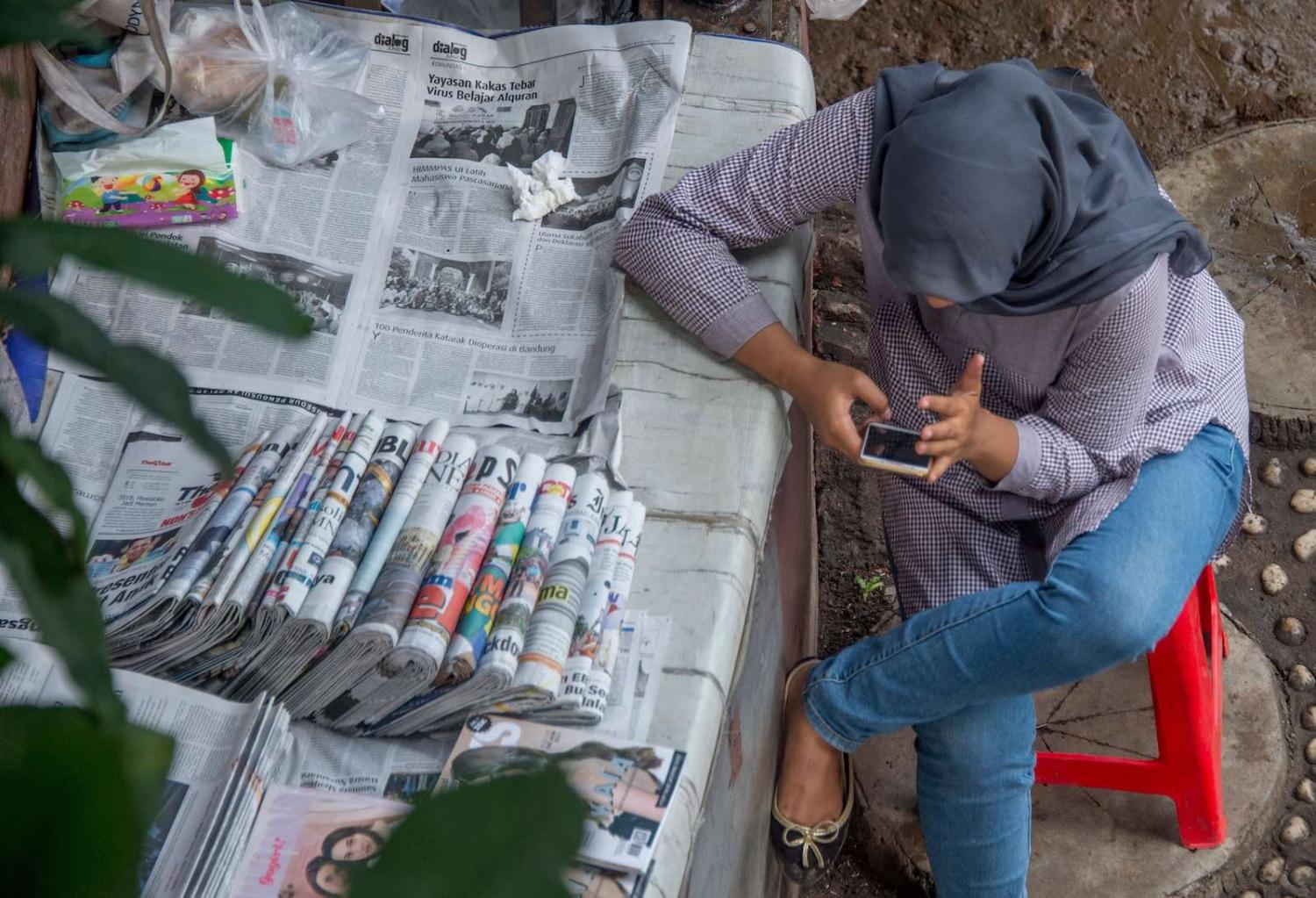In an unexpected announcement, Indonesian President Joko (Jokowi) Widodo this month called upon Indonesia’s military and police leadership to “improve supervision to ensure that the implementation of the Electronic Information and Transactions (ITE) Law can be in compliance with the principle of accountability and provide the public sense of justice”. This announcement has been cautiously welcomed by Indonesian non-governmental organisations and press freedom groups which have campaigned against the law since its introduction in 2008.
The ITE law – contrary to the then-government’s 2008 justification – migrated the more odious aspects of Indonesia’s criminal defamation laws to all electronic communications. At the time of its introduction, the change to the law was put forward by the government of Susilo Bambang Yudhoyono as a simple technical tweak to permit the regulation of the new phenomenon “e-commerce”. It was claimed that in an age of digital communications and free trade, all modern countries needed such a law.
At the time, NGOs and press freedom groups were quick to point out that the proposed law, far from merely regulating e-commerce, introduced an extended range of vague and imprecise offences with draconian penalties. For example, whereas the old criminal defamation law did not provide for arrest and detention upon charging, the new law did. All manner of “insults” including blasphemy were caught by the law. And as proved to be the case, any electronic communication can be caught by the law including personal emails and blogs.
So imprecise were the offences established by the change and the inchoate legal standards which it imposed that local wags started to refer to the law’s “pasal karet” or “rubber articles”.
The critics’ predictions were quickly vindicated when the first charges were laid under the new law against a suburban mother, Prita Mulyasari, south of Jakarta for relatively anodyne criticisms on her blog of the service provided to her by a local hospital. Without warning, she was arrested and imprisoned. The arrest coincided with the 2008 national election campaign, and all candidates were quick to condemn the action. She was promptly released after a public outcry. The case eventually fizzled out, but not before Prita was first convicted of defamation and then many years later acquitted.
Despite the public outcry, the law remained on the books.
Jokowi’s initiative offers a slight glimmer of hope for progressive reform and must be welcomed. But expectations should not be excited.
The absurdity of the law and its “rubbery” application was again highlighted with the 2014 prosecution of a law student who had blogged about the “rudeness” of citizens in Yogyakarta – writing that the city “is poor, stupid and uncultured”. She was jailed for two months and fined.
To add insult to injury, in 2016 the law was changed to enable the government to block access to electronic documents suspected of disseminating information related to “defamation” among other things.
Recently the law has been used against West Papuan activists who have engaged in nonviolent dissent and against environmental journalists covering land disputes.
The ITE law has not been used widely against journalists, and the Indonesian Press Council has endeavoured, not entirely successfully, to keep its use against the press at bay. Because of its notoriously imprecise “rubbery” scope and inconsistent application, it nevertheless has had a chilling effect on the free media, which cannot be underestimated, permitting selective prosecution of journalists. Amnesty International reports that throughout 2020, there were around 119 cases of alleged violations of the right to freedom of expression using the ITE Law, with 141 “suspects”, including 18 activists and four journalists.
The Director of Amnesty International Indonesia, Usman Hamid, has been a prominent critic of the ITE Law. He has stressed that the government must also realise that the protection of freedom of opinion and expression will not end with its revision. “There are articles in other laws that are also often used to ensnare freedom of expression,” he said. He points to the treason article in the Criminal Code used to ensnare peaceful activists in Papua, adding that “the police must also use a human rights perspective in enforcing the law so as not to violate freedom of opinion and expression”.
In Indonesian national law, the right freedom of expression and opinion safeguarded by the International Covenant on Civil and Political Rights, has been guaranteed in the Indonesian Constitution, as well as in the law on human rights. Its implementation in practice remains a problem.
In 2020, media freedom in Southeast Asia continued in a state of depressing retreat. In recent weeks, new “cyber laws” in Myanmar and Cambodia directed at civil society and the relentless prosecution of Rappler in the Philippines, have served to amplify this trend. In this regional context, Jokowi’s initiative offers a slight glimmer of hope for progressive reform and must be welcomed.
But expectations should not be excited. As always, the devil will be in the detail. Will the law be reformed, and when? Those foreign journalists who the president said would be welcome to travel to West Papua back in May 2015 – and are still waiting – would counsel patience.

